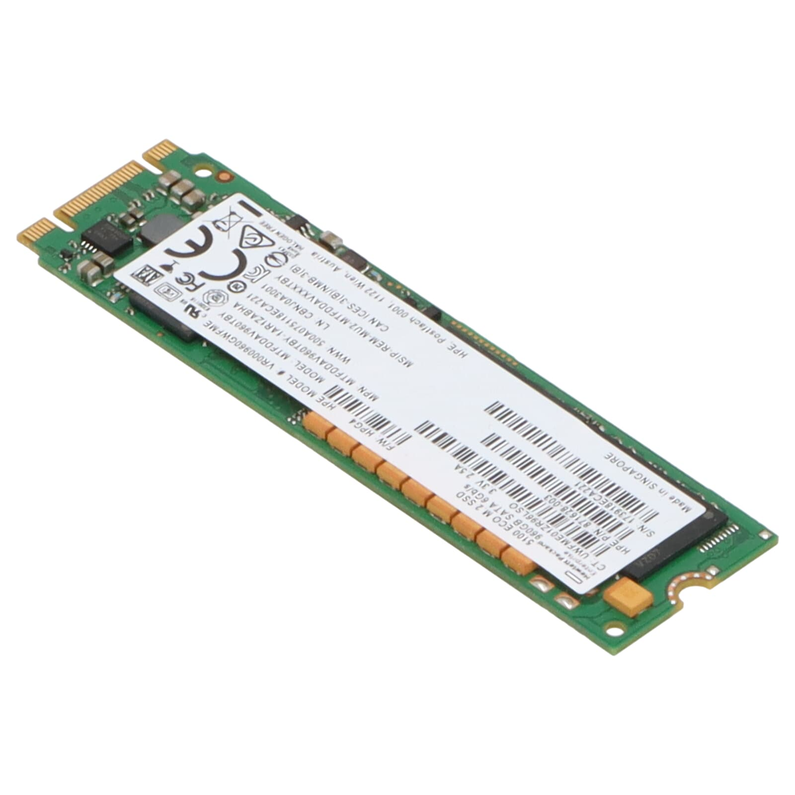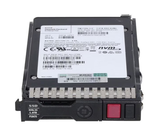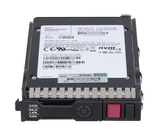Enhancing Server Performance: HPE Digitally Signed Read-Intensive M.2 SSDs for ProLiant Gen9 and Gen10
In the evolving landscape of data-driven operations, reliable and efficient storage solutions are essential for maximizing the performance of enterprise servers. Hewlett Packard Enterprise (HPE) has developed a range of digitally signed read-intensive M.2 SSDs specifically designed to complement their ProLiant Gen9 and Gen10 server series. These SSDs are tailored to address the needs of high-speed data access, data integrity, and robust security, making them an integral part of modern data centers. This article delves into the features, benefits, and use cases of HPE’s digitally signed read-intensive M.2 SSDs, explaining how they enhance the functionality of ProLiant servers.
Overview of HPE Read-Intensive M.2 SSDs
M.2 solid-state drives (SSDs) are compact, high-performance storage devices that have gained popularity for their small form factor and impressive speed. HPE’s read-intensive M.2 SSDs are optimized for read-heavy workloads, where fast data retrieval is more critical than continuous write operations. These drives offer a balance between cost-effectiveness and performance, tailored for use cases that demand consistent read speeds, such as database query operations, boot drives, and read caching.
One of the standout features of these HPE SSDs is their digital signing technology. Digital signatures ensure that the firmware running on the SSD is legitimate and hasn’t been tampered with, which bolsters the security of data storage and minimizes the risk of malicious firmware attacks. This feature is particularly valuable for organizations prioritizing data security and regulatory compliance.
Key Features of HPE Digitally Signed Read-Intensive M.2 SSDs
1. High Performance:
These SSDs provide accelerated read speeds that significantly enhance data access times. The high-speed performance is especially beneficial in server environments where low latency is essential for maintaining optimal workload efficiency.
2. Digital Signature for Enhanced Security:
The digital signature embedded in these SSDs acts as a safeguard, ensuring that only authenticated firmware runs on the device. This helps to prevent unauthorized firmware modifications and protects against potential cyber threats. The use of digitally signed firmware aligns with HPE’s commitment to comprehensive security across its hardware ecosystem.
3. Compatibility with ProLiant Gen9 and Gen10 Servers:
Designed to seamlessly integrate with HPE ProLiant Gen9 and Gen10 servers, these M.2 SSDs offer flexibility and ease of deployment. This compatibility ensures that users can take full advantage of the storage capabilities without needing additional modifications or adapters.
4. Read-Intensive Optimization:
With a focus on read-heavy operations, these SSDs are ideal for tasks that prioritize data retrieval over constant data writing. Typical applications include content delivery, virtual machine (VM) deployment, and boot drives. The SSDs are engineered to provide high IOPS (input/output operations per second), ensuring that server tasks relying on quick data access are executed efficiently.
5. Reliability and Durability:
Despite being read-intensive, HPE’s M.2 SSDs are built to handle significant workloads with reliability. Enhanced wear-leveling algorithms and error-correcting code (ECC) technology help extend the lifespan of the drives, even when subjected to continuous data processing demands.
Benefits of Deploying HPE Digitally Signed Read-Intensive M.2 SSDs
1. Enhanced Security for Critical Data:
In an era where cybersecurity threats are a major concern for businesses, HPE’s use of digitally signed firmware in its M.2 SSDs adds a crucial layer of protection. This feature assures organizations that their storage firmware is protected from unauthorized modifications, reducing the potential attack surface and helping meet stringent compliance requirements.
2. Improved System Boot and Application Loading Times:
Leveraging these M.2 SSDs as boot drives in ProLiant servers can lead to faster system startup and application loading times. This improves the overall efficiency of the server, providing better responsiveness and reduced downtime in data-intensive environments.
3. Cost-Effective Storage for Read-Heavy Workloads:
The read-intensive design of these SSDs makes them an excellent choice for applications that require frequent data retrieval but limited data writing. This results in a cost-effective solution compared to more expensive write-intensive storage options, allowing organizations to allocate budget more effectively based on workload requirements.
4. Space-Saving Form Factor:
The compact M.2 form factor means that these SSDs can be integrated without taking up significant space in the server chassis. This allows for better utilization of space, leaving room for other critical server components and contributing to an efficient overall server architecture.
Use Cases for HPE Digitally Signed Read-Intensive M.2 SSDs
1. Boot and OS Drives:
The fast read speeds and reliability of HPE’s M.2 SSDs make them an ideal choice for use as boot drives. Deploying these drives as boot devices ensures that the operating system loads quickly, minimizing server boot time and optimizing startup processes.
2. Virtualization Platforms:
For organizations running multiple VMs on ProLiant servers, these SSDs provide quick data access that improves the performance of virtual machines. Fast retrieval times translate to smoother VM deployments and better overall user experiences.
3. Database and Analytics Applications:
Data-heavy environments that focus on read-intensive database queries and analytics tasks benefit from the speed and consistency of HPE M.2 SSDs. By incorporating these drives into their infrastructure, businesses can ensure high-performance data access essential for real-time analytics and reporting.
4. Content Delivery Networks (CDNs):
Companies involved in streaming services or content delivery rely on fast read operations to deliver data to end-users efficiently. HPE’s read-intensive M.2 SSDs are well-suited for caching data that needs to be served rapidly, contributing to improved performance and user satisfaction.
Compatibility and Integration with ProLiant Gen9 and Gen10 Servers
HPE’s focus on providing seamless integration with its server lineup means that these M.2 SSDs are rigorously tested for compatibility with both ProLiant Gen9 and Gen10 servers. This ensures that IT administrators can implement these drives without compatibility concerns, streamlining deployment and configuration processes. ProLiant servers, known for their robust performance and reliability, benefit from the added speed and security provided by these SSDs, making them more versatile and effective for various enterprise workloads.
Moreover, ProLiant Gen9 and Gen10 servers support a range of management tools, such as HPE Integrated Lights-Out (iLO), which can monitor and manage these SSDs, providing insights into drive health, performance metrics, and security alerts. This integration enhances the overall manageability of the server infrastructure, allowing IT teams to respond quickly to potential issues and maintain optimal performance.
Conclusion
HPE’s digitally signed read-intensive M.2 SSDs are a testament to the company’s commitment to providing secure, reliable, and high-performance storage solutions for modern enterprises. By integrating these drives with ProLiant Gen9 and Gen10 servers, businesses can achieve faster data access, improved security, and better resource efficiency. Whether used as boot drives, in virtualized environments, or for data-intensive applications, these SSDs offer a cost-effective and space-saving option that meets the demands of today’s competitive IT landscape.
For organizations looking to enhance their server performance and safeguard their data, HPE’s digitally signed read-intensive M.2 SSDs represent a powerful addition to their data center arsenal.
Recent Posts
-
Unleashing Enterprise Performance: Exploring the HPE 1.6TB NVMe U.2 PCIe SCN Mixed Use SSD for ProLiant Gen10 Servers
HPE 1.6TB 2.5-Inch Small Form Factor NVMe U.2 PCIe SCN Mixed Use Solid State Drive for Pr …Apr 14th 2025 -
Unlock Peak Server Performance with HPE’s High-Speed 1.6TB NVMe U.2 SSD – Designed for Gen10 Power Users
HPE 1.6TB 2.5-Inch Small Form Factor NVMe U.2 PCIe x4 High Performance SCN Mixed Use SSD for Pr …Apr 13th 2025 -
Unleashing Turbocharged Performance for ProLiant Gen10 Data Dynamos
HPE 1.6TB 2.5-Inch Small Form Factor NVMe U.2 PCIe x4 SCN Mixed Use SSD for ProLiant Gen10 Serv …Apr 12th 2025




